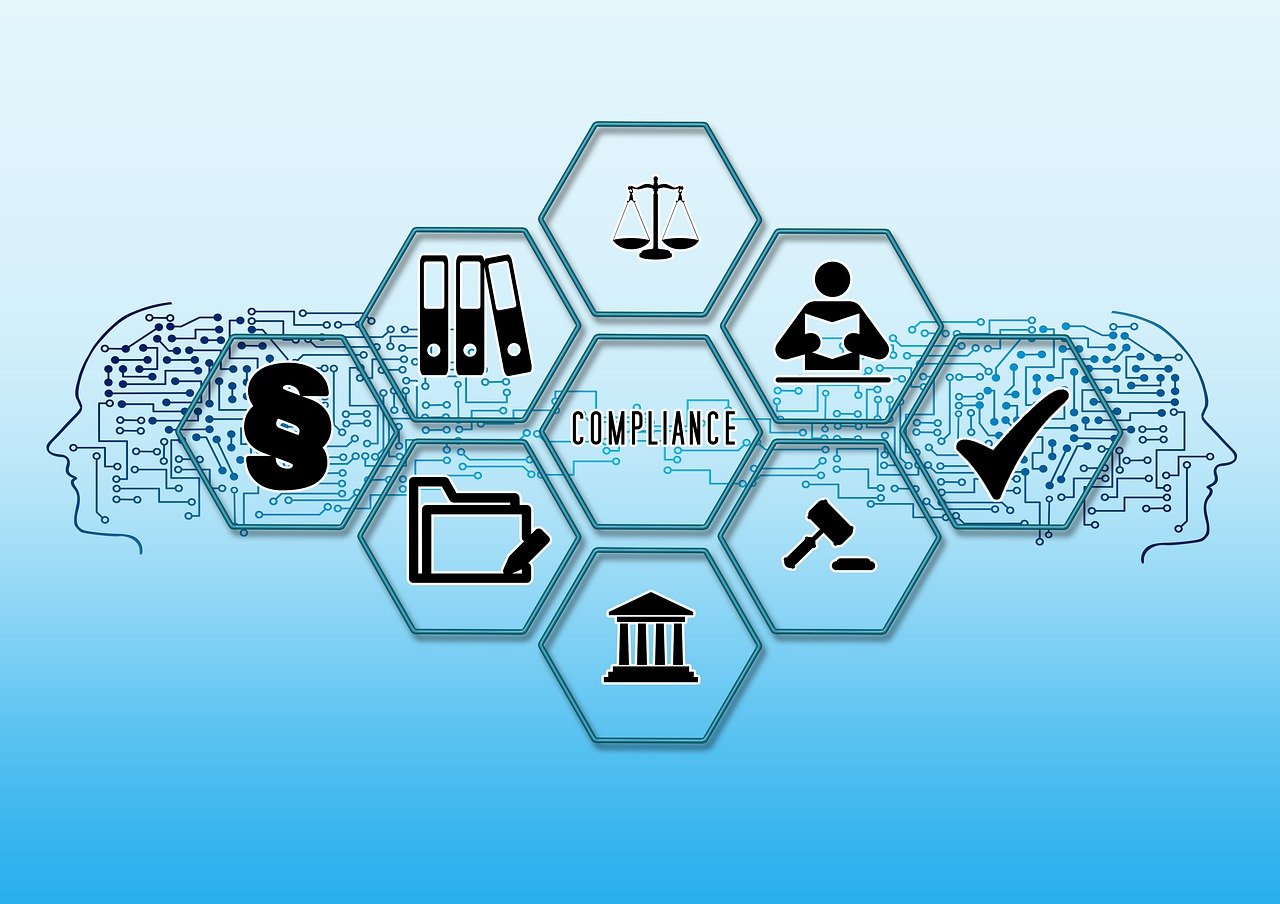Why is Compliance Becoming Increasingly Important in Supply Chain Management?

You face a new era where compliance importance in supply chain management grows every day. Governments and regulatory bodies now demand greater transparency in sourcing, labor conditions, and environmental impact.
The average cost of compliance violations has increased by 43% over the past decade.
Non-compliance can lead to hefty fines and hurt your brand’s reputation.
As global challenges evolve, you must adjust your strategies to stay competitive and reduce risk.
Key Takeaways
Compliance is essential for smooth business operations. It helps you avoid fines and disruptions by following legal and ethical standards.
Invest in technology like AI and blockchain to enhance transparency and track your supply chain effectively. These tools help you meet regulatory demands.
Regular training for your team and suppliers ensures everyone understands compliance rules. This builds a strong culture of accountability.
Proactive monitoring of your supply chain allows you to identify risks early. This helps you maintain compliance and protect your reputation.
Prioritizing compliance can give you a competitive edge. It attracts customers who value ethical practices and responsible sourcing.
Compliance Importance

Business Operations
You operate in a world where compliance shapes every part of your supply chain. Compliance requirements demand that you follow legal, ethical, and operational standards. If you ignore these rules, you risk financial penalties, disruptions, and damage to your reputation. You must build compliance into your daily processes to keep your business running smoothly.
Compliance ensures you follow the laws of each country where you do business. This legal foundation keeps your cross-border trade moving. Any mistake can stop your operations and cost you money.
You face many challenges, such as communication issues, fragmented supply chains, and unpredictable demand. These problems make it harder to keep up with compliance. You need strong systems to track your goods, manage suppliers, and respond to new rules quickly.
Challenge | Description |
|---|---|
Communication Issues | Keeping everyone informed is tough, especially with many partners. Good communication helps prevent shortages and reduces waste. |
Supply Chain Fragmentation | Using many suppliers makes it hard to share data. Better teamwork increases visibility and control. |
Demand Forecasting Challenges | Changing customer needs make it hard to predict demand. Reliable forecasting avoids extra costs and lost sales. |
External Economic Factors | Labor shortages and inflation slow down deliveries and raise costs. You must adapt to stay efficient. |
You must also use technology, such as traceability platforms and AI analytics, to check your shipments and suppliers. These tools help you avoid restricted transactions and keep your supply chain transparent.
Regulatory Demands
Regulatory demands grow more complex every year. Governments now require you to prove where your materials come from and how they are made. New laws, like the Uyghur Forced Labor Prevention Act, ban imports linked to forced labor. You must keep detailed records and show that your supply chain meets these standards.
New laws prohibit imports tied to unethical practices.
Regulators require proof of origin and ethical sourcing.
You must also follow rules like the EU’s Carbon Border Adjustment Mechanism and Corporate Sustainability Due Diligence Directive. These regulations focus on sustainability and ethical sourcing. You need to monitor your supply chain closely to meet these expectations.
Regulatory Demand | Description |
|---|---|
You must follow environmental, social, and governance standards. This includes ethical sourcing and labor rights. | |
Anti-bribery and Corruption Laws | You must avoid unethical business practices and ensure transparency. |
Local and International Regulations | You must meet various laws on sustainability and transparency, such as those from the EU, Canada, and Australia. |
You also face new challenges, such as longer recordkeeping mandates and stricter export controls. These changes force you to update your compliance strategies and invest in better monitoring systems.
Stakeholder Expectations
Your stakeholders expect you to take control of human rights issues and ethical practices. Investors want proof that you manage risks and follow the rules. Customers look for transparency in how you source your products. Suppliers need clear guidelines on what you expect from them.
Stakeholders expect you to address forced labor, unsafe conditions, and child labor.
They want open communication and accountability.
You must manage risks and act ethically, even if the law does not require it.
You can meet these expectations by mapping your supply chain, publishing sustainability reports, and using blockchain for traceability. These actions show your commitment to compliance and build trust with your partners.
When you focus on compliance importance, you protect your brand and gain a competitive edge. You show that you care about ethical practices and responsible sourcing. This approach helps you stand out in the market and attract loyal customers.
Key Drivers

Regulatory Changes
You see new regulations shaping how you manage your supply chain. Governments now expect you to track your products and prove ethical sourcing. For example, the German Supply Chain Due Diligence Act and the EU Supply Chain Law require you to identify and prevent human rights and environmental abuses. These laws push you to audit your suppliers and keep detailed records.
Regulation | Description |
|---|---|
German Supply Chain Due Diligence Act | Imposes obligations on German companies to identify, prevent, and address human rights and environmental abuses in their operations and those of direct suppliers. |
EU Supply Chain Law | Requires EU companies to audit suppliers throughout the global supply chain to ensure compliance with human rights and environmental standards. |
You also face new rules like the Carbon Border Adjustment Mechanism and the Uyghur Forced Labor Prevention Act. These laws demand more transparency and accountability. You must adopt proactive strategies to meet these requirements and avoid penalties. Compliance Importance grows as these regulations become stricter and more detailed.
Globalization
You operate in a world where your suppliers, customers, and partners may be spread across many countries. This global reach brings new challenges. You must follow different laws and cultural practices in each country. Managing customs rules, environmental standards, and trade restrictions takes time and resources.
You must learn to handle many legal requirements at once.
You need to understand cultural differences to avoid misunderstandings.
Tracking goods across borders can be difficult and costly.
"Our analysis of conflict minerals reports revealed that nearly 80% of corporations could not determine the origin of materials, indicating that complexity in supply chains reduces visibility and compliance certainty."
When you work globally, you face risks like cost changes, delays, and penalties for non-compliance. You must stay alert and flexible to keep your supply chain running smoothly.
Supply Chain Complexity
Your supply chain may include many layers of suppliers and partners. Each layer adds more rules and risks. Multi-tiered supply chains make it hard to monitor compliance at every step. You must keep up with changing regulations and ensure traceability.
Multi-tiered supply chains involve many intermediaries, making monitoring difficult.
New regulations appear often, so you must adapt quickly.
Greater demands for transparency mean you need better tracking systems.
Non-compliance can lead to severe penalties.
You need strong compliance measures to manage these challenges. When you focus on Compliance Importance, you protect your business from risks and build trust with your stakeholders.
Compliance Benefits
Risk Reduction
You lower your risks when you focus on compliance. Regular audits help you spot problems before they grow. You can find weak spots in your supply chain and fix them fast. This keeps your business safe from fines and delays.
Enhanced visibility lets you see risks early.
Proactive monitoring helps you predict and stop disruptions.
Supplier compliance checks make it easier to follow new rules.
Many new laws, like the German Supply Chain Due Diligence Act, ask you to look for risks and report them. You need to show that you know where your goods come from and how they are made. This level of transparency protects you from hidden dangers.
Benefit | Description |
|---|---|
Risk Mitigation | Supply chain audits can identify potential vulnerabilities and non-compliance issues, enabling you to address risks and take action. |
Compliance Assurance | Regular audits help you follow laws and avoid legal trouble or penalties. |
Reputation
Your reputation depends on how you handle compliance. If you follow environmental, social, and governance (ESG) standards, you build trust with customers and partners. Many companies lose their good name because of poor transparency or bad practices in their supply chain.
Good compliance helps you avoid scandals linked to forced labor or unsafe work.
Ethical actions in your supply chain make your brand stronger.
Problems with one partner can hurt your whole company’s image.
Research shows that what you do in your supply chain affects how people see your business. You must pay attention to every link in your chain to protect your reputation.
Competitive Edge
You gain an advantage over others when you make compliance a priority. Strong compliance systems help you save money and work more efficiently. You know where your resources are needed, so you avoid waste and cut costs.
Benefit | Description |
|---|---|
Knowing when and where resources are needed helps you avoid overproduction and reduce waste. |
You also respond faster to new rules and market changes. Customers and investors choose companies that care about ethical sourcing and transparency. Compliance Importance grows as more buyers look for responsible partners.
Tip: Use compliance as a tool to stand out in your industry. Show your commitment to ethical practices and win loyal customers.
Practical Strategies
Continuous Monitoring
You need to watch your supply chain all the time. Continuous monitoring helps you spot problems early and keep your business safe. You can use real-time data to track goods and check supplier actions. This makes it easier to follow new rules and avoid mistakes.
Real-time tracking gives you quick updates on shipments and supplier practices.
Automated systems help you find risks before they grow.
Ongoing oversight keeps suppliers accountable for quality and ethics.
Continuous monitoring lets you adapt fast when regulations change. You build trust with customers and partners by showing you care about transparency.
You should map your supply chain, including sub-suppliers. This helps you find weak spots and protect labor standards. Many companies now review the origin of goods and check every supplier’s location to avoid compliance issues.
Digital Tools
You can use digital tools to make compliance easier. Automated solutions help you check supplier risks and track compliance. AI and machine learning predict problems before they happen. Blockchain gives you clear records of every transaction. IoT devices collect data from shipments and factories.
Tool | Benefit |
|---|---|
Automated Solutions | Improve oversight and save time |
Supplier Tracking | Spot risks and check compliance status |
AI Analytics | Predict violations and improve accuracy |
Blockchain | Ensure transparency and traceability |
IoT Devices | Collect real-time data for quick action |
Digital tools help you see every part of your supply chain. You can find out where goods come from and how they are made. This helps you meet new laws and keep your business strong.
Team Training
You must train your team to understand compliance rules. Good training helps employees make smart choices and avoid mistakes. You can create manuals and use contract templates that follow the law. Regular training keeps everyone up to date.
When you manage compliance well, you make your business run smoother. Training helps your team spot risks and act fast.
You should also train suppliers and sub-suppliers. Tailored programs teach them what you expect and how to follow your standards. This builds a strong culture of compliance across your whole supply chain.
You face a supply chain world where compliance matters more than ever. By making compliance a priority, you protect your business and build trust. When you act early, you gain many long-term benefits:
Improved efficiency and cost savings
Increased stakeholder confidence
Competitive advantage
Improved regulatory compliance
Stronger supply chain resiliency
Benefit | Description |
|---|---|
You prevent costly penalties by solving compliance issues early. | |
Enhancing Operational Efficiency | You save time and resources, making your supply chain stronger. |
Improving Reputation | You show your commitment to ethics, which builds loyalty and trust. |
Start using these strategies now to keep your supply chain strong and ready for the future.
FAQ
What happens if you ignore supply chain compliance?
You risk fines, shipment delays, and damage to your brand. Non-compliance can stop your business from selling in some markets. You may also lose trust with customers and partners.
How can you keep up with changing regulations?
You can use digital tools to track new laws. Join industry groups for updates. Train your team often. Set up alerts for important changes.
Why do customers care about supply chain compliance?
Customers want safe, ethical products. They look for brands that respect workers and the environment. Good compliance shows you care about people and the planet.
What tools help you manage supply chain compliance?
Tool | Use |
|---|---|
AI Analytics | Spot risks early |
Blockchain | Track product origins |
IoT Devices | Monitor shipments in real time |
